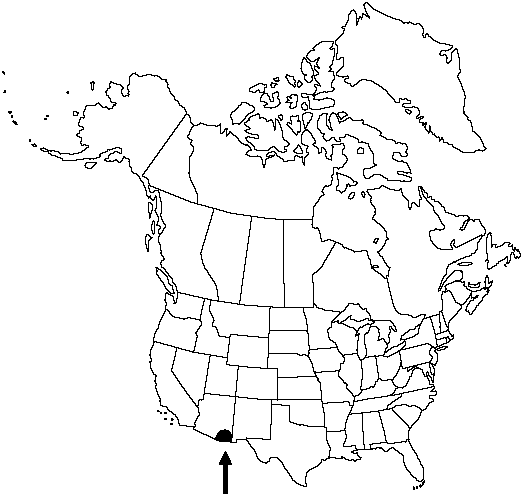Notholaena lemmonii
Bull. Torrey Bot. Club 7: 63. 1880.
Stem scales weakly bicolored, margins brown, narrow, poorly defined, thin, sparsely ciliate-denticulate. Leaves 7–30 cm. Petiole black to dark brown, much shorter than blade, grooved or flattened adaxially, bearing scattered glands and a few scales near base. Blade linear-lanceolate, 2-pinnate-pinnatifid, 3–6 times longer than wide, abaxially with conspicuous white or pale yellow farina, scales absent, adaxially glabrous at maturity; basal pinnae usually slightly smaller than adjacent pair, ± equilateral, proximal basiscopic pinnules not greatly enlarged. Ultimate segments sessile, broadly adnate to costae; segment margins slightly recurved, rarely concealing sporangia. Sporangia containing 64 spores. 2n = 60.
Phenology: Sporulating summer–fall.
Habitat: Rocky slopes and cliffs, usually on granitic or volcanic substrates
Elevation: 1000–1500 m
Distribution

Ariz., w Mexico.
Discussion
According to E. Wollenweber (1984), Notholaena lemmonii shows remarkable infraspecific variability in the chemical composition of the farina. R. M. Tryon (1956) recognized two varieties of N. lemmonii. The type collection of the species came from southern Arizona, and all specimens from the flora area are N. lemmonii var. lemmonii. The disjunct N. lemmonii var. australis, known only from the Mexican states of Puebla and Oaxaca, probably represents a distinct species.
Selected References
None.